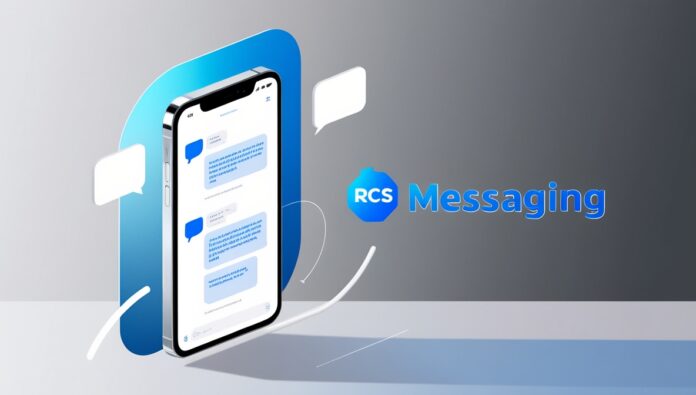In the evolving world of digital communication, RCS (Rich Communication Services) has emerged as the next-generation replacement for traditional SMS and MMS. Backed by Google and adopted by most major Android manufacturers and carriers, RCS message offers modern features like read receipts, typing indicators, high-resolution media sharing, and even end-to-end encryption in some cases. But despite this momentum, one tech giant has remained notably absent from the RCS conversation: Apple.
Apple’s continued hesitation to support RCS raises big questions about user experience, cross-platform communication, privacy, and platform loyalty. So, what’s holding Apple back—and what does it mean for iPhone users in an increasingly connected world?
What Is RCS, and Why Is It Important?
RCS messaging is designed to replace outdated SMS protocols with rich, app-like features within your phone’s default messaging app. It brings capabilities that users have long enjoyed on platforms like WhatsApp, iMessage, and Telegram:
- Typing indicators
- Read and delivery receipts
- High-res image and video sharing
- Group messaging
- Business messaging with branding and buttons
- End-to-end encryption (in supported apps like Google Messages)
In short, RCS makes texting feel like modern messaging—without requiring third-party apps. It’s especially valuable in business contexts, offering tools that rival services like the WhatsApp Business API.
Why Apple Doesn’t Support RCS—Yet
1. Lock-in Through iMessage
iMessage has been one of Apple’s most effective tools for platform loyalty. The “blue bubble” signifies that a conversation is taking place between Apple devices, offering exclusive features like full encryption, reactions, memoji, and seamless syncing across devices.
If Apple adopts RCS, which supports many of these same features, it would blur the lines between iPhone and Android messaging experiences—potentially reducing the incentive to stay within the Apple ecosystem. Apple has little interest in helping make Android more appealing.
In fact, internal emails revealed during the 2021 Epic Games vs. Apple lawsuit confirmed that Apple executives believed bringing iMessage to Android would hurt their competitive advantage. The same logic applies to RCS.
2. Control Over the Ecosystem
Apple prefers end-to-end control over user experience, from hardware to software. RCS is an open standard with contributions from carriers, tech companies, and industry groups. That inherently makes it harder for Apple to control.
For Apple, relying on a standard it didn’t design or dominate could introduce fragmentation or diminish its ability to enforce privacy, user experience, and design principles on its own terms.
3. Security and Privacy Concerns
While Google’s version of RCS supports end-to-end encryption for one-on-one chats, not all implementations of RCS are encrypted—especially those managed by carriers. Apple markets itself as a privacy-first company, and it may see non-uniform encryption as a risk.
Compared to iMessage, where all messages are fully encrypted, RCS implementations vary by carrier and device, making it harder to offer a consistent privacy guarantee.
4. Apple’s Strategic Silence
Apple hasn’t ruled out RCS entirely—but it hasn’t supported it either. The company may be waiting for RCS to mature further, or for regulatory pressure (like the EU’s Digital Markets Act) to force a move toward interoperability.
If and when Apple does adopt RCS, it’s likely to do so on its own terms—potentially offering its own secure implementation that aligns with its privacy standards.
What This Means for iPhone Users
Apple’s refusal to support RCS has direct consequences for iPhone users, especially when communicating with Android users:
1. Downgraded Messaging Experience
When an iPhone user texts an Android user, the message defaults to basic SMS or MMS, which lacks:
- Typing indicators
- Read receipts
- High-quality images or video
- Encryption
This results in a frustrating and outdated messaging experience—especially for mixed-platform families, groups, and businesses.
2. Blue vs. Green Bubble Divide
The infamous “green bubble” stigma highlights Apple’s subtle pressure to keep communication within the Apple ecosystem. The difference in features (and aesthetics) between iMessage and SMS/RCS messages has led to social awkwardness, bullying, and alienation in some cases.
By not supporting RCS, Apple reinforces this divide—pushing iPhone users to encourage their peers to “just get an iPhone.”
3. Challenges in Global Messaging
In regions where RCS is more widely adopted, iPhone users may find themselves left out of a richer, more interactive messaging experience. Google’s Android Messages app supports advanced features that iPhone users simply can’t access in cross-platform conversations.
4. Limited Business Messaging Potential
As RCS Business Messaging grows, Android users will enjoy seamless business interactions (e.g., boarding passes, order confirmations, customer support) via native messages. Without RCS, iPhone users will continue to rely on apps like WhatsApp API or email for similar functionality—adding extra steps and friction.
Will Apple Ever Support RCS?
There are signs the tides may eventually shift.
In 2022, Google publicly pressured Apple through marketing campaigns and social media, calling on the company to “fix texting.” More importantly, regulatory frameworks like the EU’s Digital Markets Act (DMA) could compel Apple to adopt more interoperable messaging standards, especially if iMessage is designated as a “core platform service.”
If regulatory pressure increases—or if Apple sees competitive benefit—support for RCS might come with future iOS updates. That said, Apple may choose to support only its own version of RCS, preserving its control while satisfying legal requirements.
Alternatives for Better Cross-Platform Messaging
Until RCS arrives on iPhones (if ever), users looking for a better Android-to-iPhone messaging experience have some solid alternatives:
- WhatsApp: End-to-end encrypted, widely adopted, and available on all platforms. The WhatsApp Business API also enables secure, scalable communication for companies.
- Signal: One of the most secure messaging platforms with strong cross-platform compatibility.
- Telegram: Known for its speed, cloud syncing, and features like bots and channels.
These platforms offer more consistency than SMS and are ideal for families, teams, or businesses dealing with both iOS and Android users.
Apple’s hesitation to support RCS reflects both strategic and philosophical choices: maintaining platform lock-in, prioritizing privacy, and controlling user experience. While RCS promises to modernize texting across all devices, Apple’s reluctance leaves iPhone users stuck with outdated SMS when messaging outside the Apple bubble.
Whether you’re a user frustrated by green bubbles or a business exploring communication channels, understanding Apple’s RCS stance helps navigate the current (and future) messaging landscape. For now, if you want a truly modern, secure, and cross-platform messaging experience, you might be better off looking at apps like WhatsApp or Signal—at least until Apple changes its tune.

